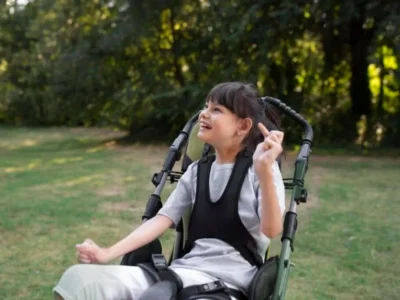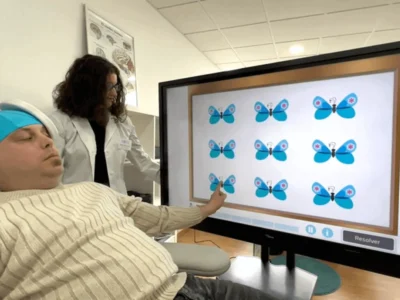Do you know the benefits of cognitive stimulation in older adults? In this article we explain the importance of cognitive stimulation in older adults
What is cognitive stimulation?
Cognitive stimulation is a set of techniques to improve the functioning of cognitive abilities. Such as attention, memory, orientation, language, executive functions, gnosias, praxias, visuospatial skills or social cognition.
Principles of cognitive stimulation
1. Be guided and supervised by a professional
Cognitive stimulation should be led by a professional, who will be responsible for designing and adapting the intervention to each person in the most appropriate way.
2. Personalized
Cognitive stimulation should be adapted to the needs, characteristics and circumstances of each person. Cognitive stimulation must be personalized for each individual.
3. Ecological validity and generalization
There should be a relationship between the improvement of the skills trained in the clinic and their relationship with better performance in day-to-day activities.
The importance of cognitive stimulation in older adults
Cognitive stimulation in older adults is essential to strengthen their functional autonomy and slow down cognitive decline in those older adults with Alzheimer’s or Parkinson’s.
Benefits of working on cognitive stimulation in older adults
- Strengthen the functional autonomy of older adults to carry out routine tasks independently;
- slow down the process of cognitive decline in diseases such as Alzheimer’s or Parkinson’s;
- reinforce and increase the person’s self-esteem;
- promote social interaction and prevent people from becoming isolated;
- prevent episodes of stress and anxiety caused by cognitive decline;
- improve the person’s quality of life and their sense of emotional and psychological well-being and health in general;
Cognitive stimulation can be worked on through neurorehabilitation platforms such as NeuronUP. Below we discuss the advantages of working on it through this digital tool:
Advantages of working on cognitive stimulation in older adults with NeuronUP
The main advantages of working on cognitive stimulation for older adults with NeuronUP are:
- Combine activities in digital format with paper exercises to carry out a complete intervention;
- train daily living tasks in a playful way;
- work in an individualized way. Professionals can personalize each intervention to adapt it to person-centered models and thus increase the motivation and performance;
- Conduct group sessions to enhance users’ motivation, work on social skills and support learning from each other while performing the task;
- work with activities developed by neuropsychologists and occupational therapists;
- use motivating material with design adapted to the age of each user;
- reinforce the intervention with activities for home (always guided by professionals). Older adults will be able to reinforce the work carried out at the center and avoid interruptions of sessions due to illness or vacations;
- Bring technology closer to older adults.
Cognitive stimulation exercises for older adults
In the following article you will find seven examples of cognitive stimulation exercises for older adults designed by neuropsychologists and occupational therapists at NeuronUP.
Bibliography
- Kueider, A. M., Parisi, J. M., Gross, A. L., & Rebok, G. W. (2012). Computerized Cognitive Training with Older Adults: A Systematic Review. PLoS ONE, 7(7). doi:10.1371/journal.pone.0040588
- Cassavaugh, N. D., & Kramer, A. F. (2009). Transfer of computer-based training to simulated driving in older adults. Applied Ergonomics, 40(5), 943-952. doi:10.1016/j.apergo.2009.02.001
- Basak, C., Boot, W. R., Voss, M. W., & Kramer, A. F. (2008). Can training in a realtime strategy video game attenuate cognitive decline in older adults? Psychology and aging, 23(4), 765-777. doi:10.1037/a0013494
- Flnkel, S. I., & Yesavage, J. A. (1989). Learning mnemonics: A preliminary evaluation of a computer-aided instruction package for the elderly. Experimental Aging Research, 15(4), 199-201. doi:10.1080/03610738908259776
- Rebok, G. W., Carlson, M. C., & Langbaum, J. B. S. (2007). Training and Maintaining memory Abilities in Healthy Older Adults: Traditional and Novel Approaches. The Journals of Gerontology Series B: Psychological Sciences and Social Sciences, 62(Special Issue 1), 53-61.
- Jobe, J. B., Smith, D. M., Ball, K., Tennstedt, S. L., Marsiske, M., Willis, S. L., … Kleinman, K. (2001). Active: A cognitive intervention trial to promote independence in older adults. Controlled Clinical Trials, 22(4), 453- 479. doi:10.1016/S0197-2456(01)00139-8
- Crete-Nishihata, M., Baecker, R. M., Massimi, M., Ptak, D., Campigotto, R., Kaufman, L. D., … Black, S. E. (2012). Reconstructing the Past: Personal memory Technologies Are Not Just Personal and Not Just for memory. Human–Computer Interaction, 27(1-2), 92-123. doi:10.1080/07370024.2012.656062
- Mihailidis, A., Fernie, G. R., & Barbenel, J. C. (2001). The use of artificial intelligence in the design of an intelligent cognitive orthosis for people with dementia. Assistive technology: the official journal of RESNA, 13(1), 23-39. doi :10.1080/10400435.2001.10132031
- Cipriani, G., Bianchetti, A., & Trabucchi, M. (2006). Outcomes of a computer-based cognitive rehabilitation program on Alzheimer’s disease patients compared with those on patients affected by mild cognitive impairment. Archives of Gerontology and Geriatrics, 43(3), 327-335. doi:10.1016/j.archger.2005.12.003
- Cohene, T., Baecker, R., & Marziali, E. (2005). Designing Interactive Life Story Multimedia for a Family Affected by Alzheimer’s Disease: A Case Study. In Proceedings of ACM CHI (pp. 2–7).
- Hofmann, M., Rösler, A., Schwarz, W., Müller-Spahn, F., Kräuchi, K., Hock, C., & Seifritz, E. (2003). Interactive computertraining as a therapeutic tool in Alzheimer’s disease. Comprehensive Psychiatry, 44(3), 213- 219. doi:10.1016/S0010-440X(03)00006-3
If you liked this article about benefits of cognitive stimulation in older adults, you might also be interested in:
“This article has been translated. Link to the original article in Spanish:”
Beneficios de la estimulación cognitiva en personas mayores







 Hippotherapy: what it is, foundations, benefits, and methodology
Hippotherapy: what it is, foundations, benefits, and methodology
Leave a Reply